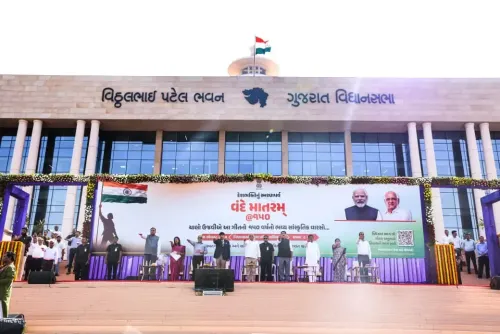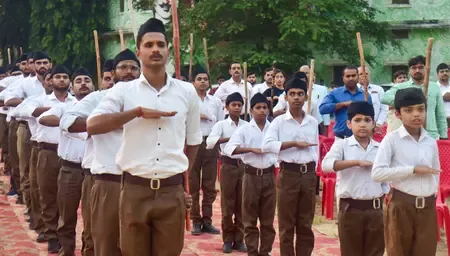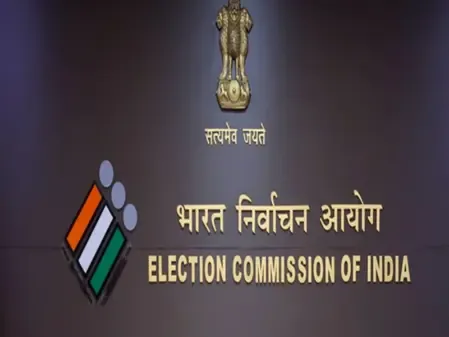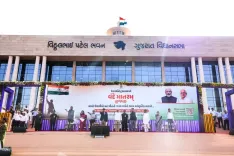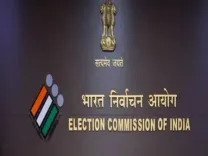How are Satellites Safeguarding India's Security?
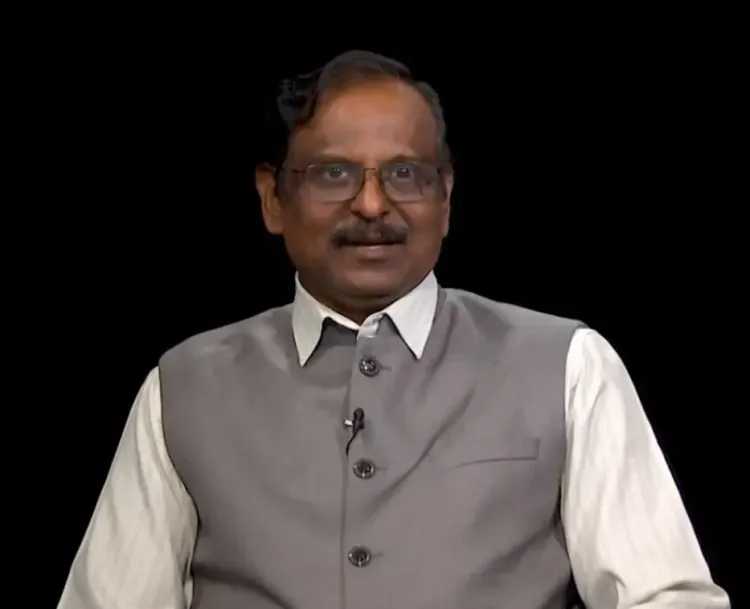
Synopsis
Key Takeaways
- 10 satellites are crucial for India's national security.
- Satellite technology aids various sectors including agriculture and disaster management.
- India's food production has increased significantly over the decades.
- The Chandrayaan-1 mission was a landmark achievement in space exploration.
- Future collaborations with the US are set to enhance India's space capabilities.
Agartala, May 11 (NationPress) The Chairman of ISRO, V. Narayanan, announced on Sunday that 10 satellites are continuously operating to safeguard the nation and its citizens.
While speaking at the 5th Convocation of the Central Agricultural University (CAU), he stated: “To protect our country, we must utilize our satellites effectively. Monitoring our extensive 7,000 km coastline is crucial. Achieving this without satellite and drone technology is nearly impossible.”
He emphasized that ISRO's satellites play a vital role in aiding the public in various sectors such as agriculture, tele-education, telemedicine, broadcasting, weather prediction, environmental monitoring, and security.
The ISRO Chairman highlighted the effectiveness of satellites in disaster management, noting that previously, thousands perished during disasters, but now the situation has improved significantly.
India excels in nine areas within the space sector, according to Narayanan.
“The Chandrayaan-1 mission was the first to uncover water molecules on the Moon's surface, a milestone for India. We have successfully launched at least 433 satellites for 34 nations from India,” he reported.
Moreover, Narayanan mentioned that India has developed satellites for G-20 countries aimed at monitoring climate changes and other sectors. He also revealed that India and the US are collaborating to create the world's most advanced Earth-imaging satellite, which will be launched from Indian soil.
He pointed out that until 1975, India lacked satellite technology, falling 70 years behind more advanced nations.
According to Narayanan, advanced satellite technologies are crucial for the common person's development. He predicted that by the time India celebrates its centennial independence, the nation will be a leader in various fields and significantly contribute to the world.
He reflected on India's agricultural progress, stating that in the 1950s and 1960s, the nation produced 54 million tons of food and relied on imports. Now, India exceeds 250 million tons in food production and exports to numerous countries. Additionally, India boasts a substantial consumer market and thriving manufacturing sector, leading globally in electricity generation and milk production.
India ranks among the top five nations in producing essential commodities such as rice, wheat, maize, horticultural crops, pulses, oilseeds, and cash crops.
“With advancements across all sectors, the average life expectancy has risen from 32 years to 72 years in recent decades, with a significant reduction in child and maternal mortality rates,” he added.
Narayanan announced that around 100 science students from each of the eight northeastern states will have the chance to visit the ISRO facility in Bengaluru to stimulate curiosity about space science and technology.
The ISRO and its array of satellites are actively supporting the development of the northeastern states and facilitating numerous projects in the region, he noted.
The ISRO Chairman encouraged graduates to contribute meaningfully to society after earning their degrees.
“There is no substitute for hard work and smart work. Total commitment and integrity are essential qualities. Self-confidence and motivation are crucial for everyone. Students should strive to be not just good professionals but also exemplary human beings,” Narayanan concluded.
The Central Agricultural University (CAU), located in Imphal, the capital of Manipur, has multiple campuses across eight northeastern states.
The convocation was chaired by CAU Chancellor, Prof. Pradeep Kumar Joshi, and took place at the College of Fisheries in Lembucherra, located 12 km north of Agartala in West Tripura district.


